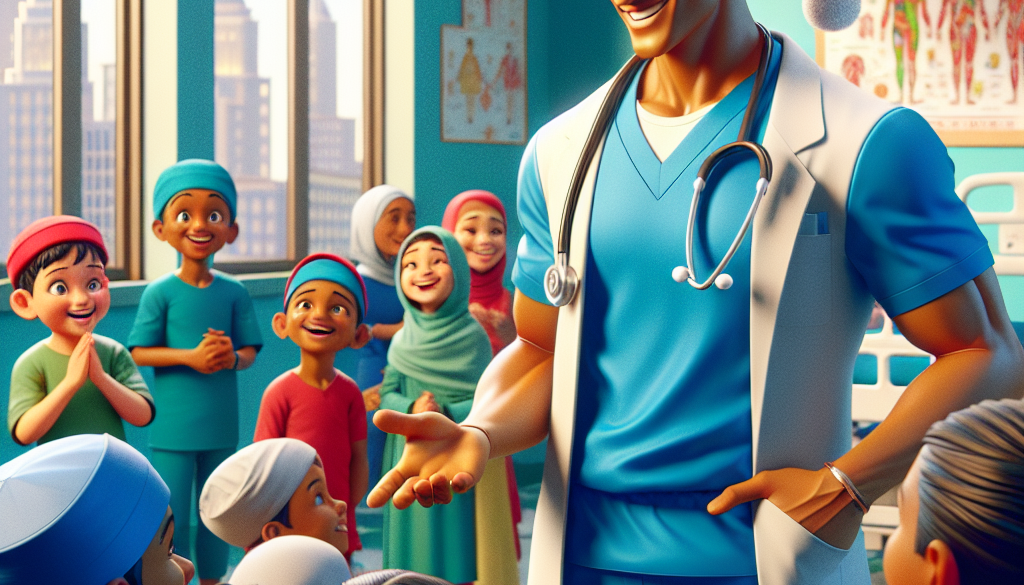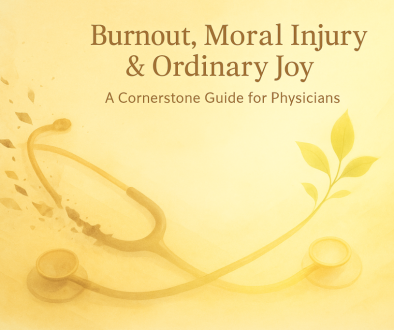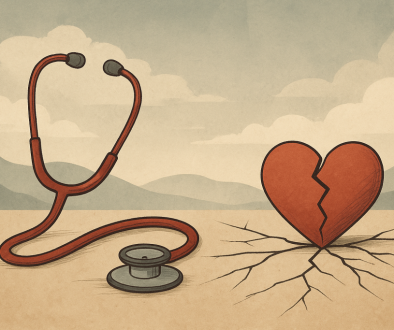Holiday Traditions: How Family Traditions Help Physicians Fight Burnout
The smell of simmering clam chowder still takes me back to my grandparent’s kitchen on Christmas Eve. As a physician who has spent countless holidays on call, I’ve learned that these cherished family traditions aren’t just childhhood memories—they’re lifelines that help us maintain our humanity in the demanding world of medicine.
Roots of Tradition: Growing Up in a Close-Knit Family
Growing up as the oldest of seven children in the midwest, family was inescapable. I was raised in the same city where my parents grew up. My siblings and I were surrounded by grandparents, aunts, uncles, and generations of cousins. Family gatherings were our routine. Whether is was something “big”, like a 16th birthday, or routine like Sunday suppers, Friday night football games, and summer afternoons at the pool, we celebrated being together. These weren’t just activities; they were the threads connecting our family’s tapestry together. I was always part of something bigger than myself.
Our traditions truly came alive during the holidays. Christmas wasn’t just a day—it evolved into an almost week-long celebration filled with piñatas, “reindeer” games, presents, family, and multiple feasts that would put holiday movies to shame. My favorite holiday tradition growing up was Christmas Eve at my maternal grandparents’ house, where my Massachusetts-born grandmother introduced our Midwestern family to the unlikely tradition of Christmas Eve clam chowder. I am unsure how the tradition started, and I don’t know if my grandma even likes clam chowder- but my siblings and I grabbed onto that tradition tightly. Now, at 100 years old, my grandma watches as the next generation continues this tradition, serving bowls of comfort and connection.
When Medicine Meets Tradition: Navigating Career Demands
The transition into medical training brought a stark reality check. During my six years of residency and fellowship, I made it home for only one Christmas. Each missed holiday felt lonely and wrong. I missed my family and our traditions. Now, having passed the midpoint of my career, I recognize these absences as more than just missed celebrations—they were missed opportunities for renewal, grounding, and preservation of self. I gave up small pieces of myself for the sake of my career.
The Science Behind Family Traditions: Why They Matter for Physician Wellness
Research supports what many of us intuitively know: traditions and rituals play a crucial role in mental health and resilience. Studies show that maintaining cultural and family traditions can:
- Reduce stress levels and anxiety
- Increase feelings of social connection
- Enhance emotional well-being
- Provide a sense of identity and continuity
- Buffer against professional burnout
Building New Traditions in Medicine
I am not the only who has missed family gathering during medical training. When traditional family gatherings aren’t possible, creating new rituals and connections becomes essential. Throughout my career, I’ve discovered ways to blend old traditions with new realities:
- Virtual Family Gatherings: Regular video calls during family celebrations.
- Workplace Traditions: Monthly get-togethers with colleagues. (When I am on call over Christmas, I round in a Santa hat. The staff loves it more than the kids!)
- Modified Celebrations: Celebrating holidays on alternate dates when schedules allow
- Personal Rituals: Creating morning routines or end-of-shift practices that ground us
- Share: Bring a cherished family meal to work and share it with your colleagues.
Practical Ways to Maintain Family Traditions During Medical Training
- Schedule protected time for important family events during rotation planning
- Create micro-traditions that can be maintained even during busy periods
- Use technology to participate in family events virtually
- Share traditional recipes or activities with colleagues
- Document and journal about family traditions to maintain connection
Creating Your Legacy: Balancing Medicine and Personal Life
Today, watching my children and those of my siblings anticipate our family traditions with the same excitement we once had, I understand their true value. They’re not just about the clam chowder or the piñatas—they’re about maintaining our humanity in a profession that often demands superhuman effort.
For those of us in medicine, traditions serve as anchors in the storm of a demanding career. They remind us that while we are healers, we are also human beings who need connection, continuity, and community. Whether carrying on longstanding family traditions or creating new ones, these rituals are more than just pleasant pastimes—they’re essential tools for preventing burnout and promoting a flourishing life.
As my grandmother’s clam chowder recipe passes to the next generation, it carries with it more than instructions for a meal. It reminds us that in medicine, as in life, these connections and traditions sustain us through the challenges we face.
What traditions do you maintain to stay grounded in your medical career? Share your story in the comments below, or reach out to learn more about building a sustainable medical career that honors both your professional calling and personal traditions.





